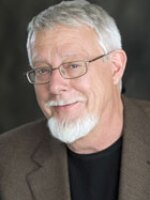SCOTT SIMON, host:
The terrorism conspiracy trial of Osama bin Laden's former driver is drawing to a close. Lawyers for Salim Hamdan rested their case before a military tribunal in Guantanamo Bay on Friday. Both the prosecution and defense are scheduled to present their closing arguments on Monday. NPR's John McChesney has been covering the proceedings in Guantanamo and joins us from there. And please tell us about the main points that were raised by Hamdan's lawyers.
JOHN MCCHESNEY: Well, Hamdan's lawyers portray him as a lowly driver, a salaried driver, not a member of the bin Laden inner circle as the prosecution has tried to maintain. They say that he, you know, he was charged with transporting weapons to al-Qaeda. And they say, basically, he was transporting weapons to a war with the Northern Alliance which had nothing to do with the United States. And basically, he wasn't involved in any activities against the United States.
And the defense today brought in written testimony from Khalid Sheikh Mohammed who is known down here affectionately as KSM. He's the architect, self-confessed architect, of the attack of 9/11. And I'll tell you, there didn't seem to be any class consciousness in al-Qaeda. Here's what Khalid Sheikh Mohammed said about Hamdan in playing any role in carrying out attacks on the United States.
He said, he didn't play any role. He was not a soldier, he was a driver. His nature was more primitive. He was a Bedouin person far from civilization. He wasn't fit to plan or execute. But he is fit to change truck tires, change oil filters, wash and clean cars, and fasten cargo to pickup trucks. He could tighten bolts and could select the best car maintenance shops. He almost sounds like the Click or the Clack of al-Qaeda.
SIMON: And they're MIT men, although I won't comment on their primitive laugh!
SIMON: Like other military trials, this one has been cloaked in a lot of secrecy. Give us some idea about some of the provisions that are taken, because that must make it difficult to cover.
MCCHESNEY: Well, take for example the judge's ruling about a very controversial piece of testimony by an agent that said that Salim Hamdan had sworn an oath of loyalty to Osama bin Laden. The judge's ruling on that was five pages. And what survived redaction was about three paragraphs, basically saying, no problem, his testimony should be admitted.
Or take for example, the Q&A with Khalid Sheikh Mohammed. We didn't expect to get transcripts of those Q&As at all. We thought we'd have to wait for days, and they came down almost immediately. Now we hear that there is a possible CIA investigation of the person who released them so quickly, even though the top-secret designation at the top of page has been lined through, as if they're no longer classified.
SIMON: So, closing arguments on Monday, right?
MCCHESNEY: Closing arguments on Monday. Sentencing to follow.
SIMON: Sentencing to follow if there's a conviction, we should say.
MCCHESNEY: If there is a conviction. And if there isn't a conviction, he could still spend the rest of his life here at Guantanamo, or at least an indefinite period until the war on terror is over.
SIMON: NPR's John McChesney at Guantanamo. Thanks very much, John.
MCCHESNEY: My pleasure, Scott. Transcript provided by NPR, Copyright NPR.







